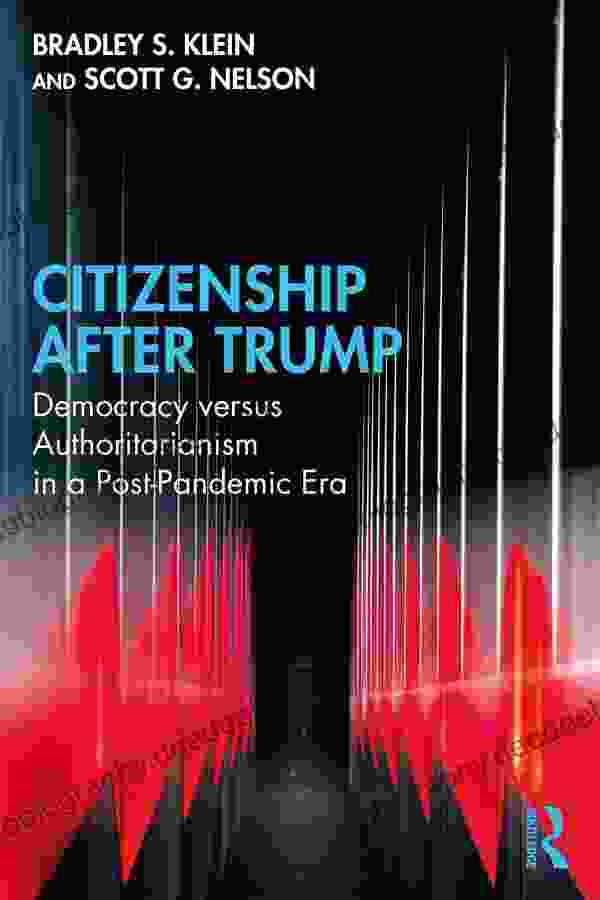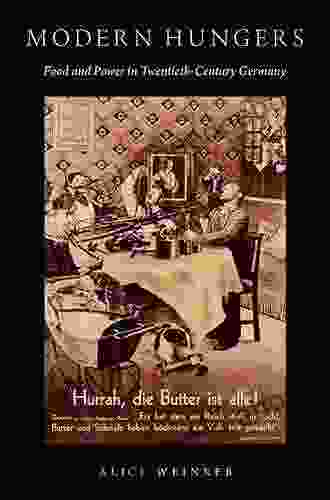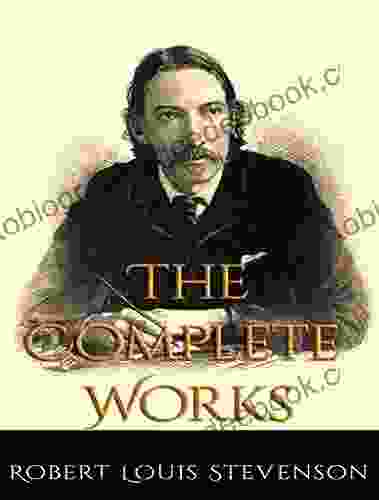Food and Power in Twentieth Century Germany: A Historical Perspective

Food has always played a vital role in human history, serving not only as sustenance but also as a source of power and control. This was particularly evident in twentieth century Germany, where food played a central role in shaping political and social events. This article explores the complex relationship between food and power in Germany during this period, examining the impact of food shortages and rationing during World Wars I and II, the use of food as a tool of control and oppression, and the role of food in the formation of national identity and resistance.
Food Shortages and Rationing during World Wars I and II
The outbreak of World War I in 1914 led to severe food shortages in Germany. The country was heavily dependent on food imports, and the British naval blockade cut off these supplies. As a result, the German government was forced to introduce rationing in order to ensure that food was distributed fairly. The rations were initially set at a low level, and many people went hungry. The situation worsened as the war dragged on, and by 1918, food shortages were widespread. The lack of food contributed to the growing unrest in Germany, and it was a major factor in the German Revolution of 1918-19.
4.7 out of 5
| Language | : | English |
| File size | : | 19927 KB |
| Text-to-Speech | : | Enabled |
| Screen Reader | : | Supported |
| Enhanced typesetting | : | Enabled |
| Word Wise | : | Enabled |
| Print length | : | 327 pages |
| Lending | : | Enabled |
| Hardcover | : | 208 pages |
| Item Weight | : | 1.74 pounds |
Food shortages also played a significant role in World War II. The German invasion of the Soviet Union in 1941 led to the loss of a major source of food supplies. The German government again introduced rationing, but the rations were even lower than they had been during World War I. Food shortages were widespread, and many people died from starvation. The lack of food also contributed to the collapse of the German economy and the defeat of the Nazi regime in 1945.
Food as a Tool of Control and Oppression
Food was also used as a tool of control and oppression in twentieth century Germany. The Nazi regime used food to reward its supporters and punish its opponents. For example, Jews and other persecuted groups were often denied access to food. The Nazi regime also used food to control the population during the war. For example, food was used to reward those who worked hard and to punish those who resisted the regime.
The use of food as a tool of control and oppression was not limited to the Nazi regime. In East Germany, the communist government also used food to control the population. For example, food was often used to reward those who were loyal to the regime and to punish those who resisted it.
Food and the Formation of National Identity and Resistance
Food also played a role in the formation of national identity and resistance in twentieth century Germany. During World War I, food shortages and rationing helped to create a sense of national unity. Germans shared their food with each other and worked together to get through the difficult times. This sense of unity helped to strengthen the German national identity.
Food also played a role in resistance to the Nazi regime. For example, some Germans refused to eat the food that was provided by the Nazi government. This was a way of showing their rejection of the regime and their support for the resistance movement.
Food played a vital role in twentieth century Germany. It was used as a tool of power and control, but it also played a role in the formation of national identity and resistance. The events of the twentieth century show that food is not just a source of sustenance, but it is also a powerful symbol that can be used to shape political and social change.
4.7 out of 5
| Language | : | English |
| File size | : | 19927 KB |
| Text-to-Speech | : | Enabled |
| Screen Reader | : | Supported |
| Enhanced typesetting | : | Enabled |
| Word Wise | : | Enabled |
| Print length | : | 327 pages |
| Lending | : | Enabled |
| Hardcover | : | 208 pages |
| Item Weight | : | 1.74 pounds |
Do you want to contribute by writing guest posts on this blog?
Please contact us and send us a resume of previous articles that you have written.
 Page
Page Chapter
Chapter Story
Story Genre
Genre Reader
Reader Library
Library Paperback
Paperback E-book
E-book Magazine
Magazine Paragraph
Paragraph Shelf
Shelf Bibliography
Bibliography Foreword
Foreword Footnote
Footnote Scroll
Scroll Codex
Codex Classics
Classics Library card
Library card Narrative
Narrative Biography
Biography Autobiography
Autobiography Dictionary
Dictionary Thesaurus
Thesaurus Character
Character Resolution
Resolution Librarian
Librarian Catalog
Catalog Borrowing
Borrowing Stacks
Stacks Archives
Archives Research
Research Rare Books
Rare Books Special Collections
Special Collections Study Group
Study Group Thesis
Thesis Dissertation
Dissertation Storytelling
Storytelling Book Club
Book Club Theory
Theory Textbooks
Textbooks Nikolai Andrew
Nikolai Andrew Javier Martos Carretero
Javier Martos Carretero William Crooke
William Crooke Sebastian Garbe
Sebastian Garbe Monica Furlong
Monica Furlong Tom Slee
Tom Slee L Joseph Hebert Jr
L Joseph Hebert Jr Lorena Angell
Lorena Angell Callie Gardner
Callie Gardner Joseph Maddrey
Joseph Maddrey Mike Marqusee
Mike Marqusee Kate Douglas Wiggin
Kate Douglas Wiggin Alice L Conklin
Alice L Conklin Andrew Bibby
Andrew Bibby Robert Brandon
Robert Brandon S E M Ishida
S E M Ishida Vivek Mansingh
Vivek Mansingh Ken Chan
Ken Chan Kristi Simpson
Kristi Simpson Justin Alistair Lowde
Justin Alistair Lowde
Light bulbAdvertise smarter! Our strategic ad space ensures maximum exposure. Reserve your spot today!

 Howard PowellAn Enchanting Journey to Connaught's Sheila Stone: A Realm of Myths, Legends,...
Howard PowellAn Enchanting Journey to Connaught's Sheila Stone: A Realm of Myths, Legends,... Branson CarterFollow ·13k
Branson CarterFollow ·13k George OrwellFollow ·12k
George OrwellFollow ·12k Virginia WoolfFollow ·18.6k
Virginia WoolfFollow ·18.6k Jan MitchellFollow ·13.8k
Jan MitchellFollow ·13.8k Colin RichardsonFollow ·13.3k
Colin RichardsonFollow ·13.3k Ted SimmonsFollow ·4.2k
Ted SimmonsFollow ·4.2k Fred FosterFollow ·18.1k
Fred FosterFollow ·18.1k Morris CarterFollow ·2.2k
Morris CarterFollow ·2.2k

 Fletcher Mitchell
Fletcher MitchellEducation And Peace Montessori 10: Where Learning...
A Symphony of Learning and Well-being Amidst...

 Glen Powell
Glen PowellUnveiling the Wonders of Language and Literacy...
Language and literacy...

 Rod Ward
Rod WardThe Portable Benjamin Franklin: A Timeless Collection of...
In the vast tapestry of American history,...

 Kelly Blair
Kelly BlairDemocracy Versus Authoritarianism in the Post-Pandemic...
The COVID-19...

 Colin Richardson
Colin RichardsonGet Inspired To Shoot Over 130 Poses
Are you looking for...

 Jared Nelson
Jared NelsonEmbark on a Shadowy Journey: The Forbidden Wilds and...
Prologue: A Realm Enshrouded in Darkness As...
4.7 out of 5
| Language | : | English |
| File size | : | 19927 KB |
| Text-to-Speech | : | Enabled |
| Screen Reader | : | Supported |
| Enhanced typesetting | : | Enabled |
| Word Wise | : | Enabled |
| Print length | : | 327 pages |
| Lending | : | Enabled |
| Hardcover | : | 208 pages |
| Item Weight | : | 1.74 pounds |









